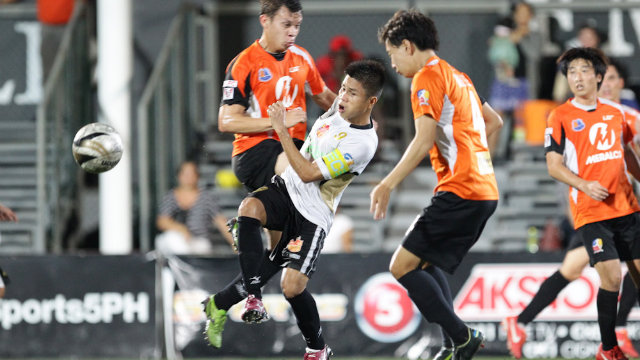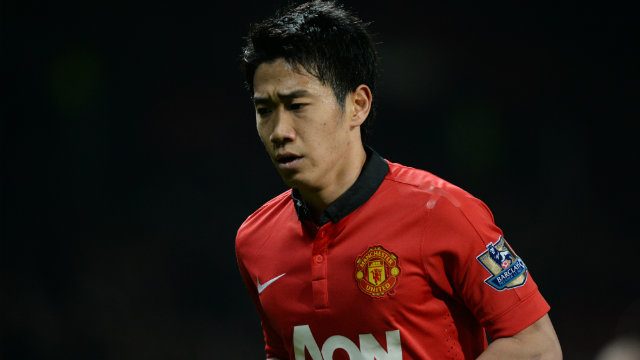SUMMARY
This is AI generated summarization, which may have errors. For context, always refer to the full article.

SINGAPORE – Asian football is slowly climbing the ladder but problems with corruption and a fixation with European leagues mean the region will be waiting years for a maiden World Cup win.
If success were measured in population size or spending, Asian countries would be world-beaters but of the billions splashed out on TV feeds and football merchandise, little finds its way to domestic leagues.
The result is that Asia, encompassing two-thirds of humanity, is predominantly a region which consumes football from afar, rather than producing teams capable of taking on the world.
Ambitious Japan looks like Asia’s best hope for the World Cup in Brazil. But few believe an Asian side will win this year – or at Russia 2018, or Qatar 2022.
“I think Asian football has progressed but the question is, has it progressed at a faster rate than other areas of the world to enable an Asian country to win the World Cup?” said Singapore-based Andy Jackson of FourFourTwo magazine.
“I’m not sure it has.”
When co-hosts South Korea made their improbable run to the 2002 World Cup semi-finals, it seemed like a watershed. But progress since has been mixed.
In 2006, only Australia reached the second round, a performance matched by Japan and South Korea in 2010. Currently, Iran are Asia’s top-rated side at 37th in the FIFA rankings, with Japan the only other team in the top 50.
Despite this, individual players have made an impact, with Park Ji-Sung, Shinji Kagawa, Keisuke Honda and Yuto Nagatomo among a steady stream to succeed at European clubs.
(RELATED: Man U’s Kagawa to take out frustration on World Cup opponents)
And the English Premier League draws a huge Asian audience while European team shirts are a fashion symbol on streets from Bangkok to Beijing.
‘Kelong Kings’
“Southeast Asia in particular remains enamored by the charms of Europe’s elites, but stubbornly resistant to their domestic leagues,” said football columnist and author Neil Humphreys.
“Persistent allegations of match-fixing and corruption do not help of course, but the lack of corporate and financial interest in local leagues will always make it difficult to entice local talent and convince their parents that football is a viable career.”

It is no coincidence that Japan, widely viewed as Asia’s best national team, also has arguably its strongest, best organized and cleanest league.
China, the world’s most populous nation, has long struggled with corruption. China has only reached one World Cup, in 2002, where they failed to score a goal or win a point.
“I think you have to look at Japan as the only real (World Cup) contender for the foreseeable future and so you need to look at how they have reached that position,” said Jackson.
“It’s been through a combination of factors – a long-term vision and investment in quality youth coaching and technical development, the building of a solid and sustainable domestic competition whilst at the same time not holding back the most talented players from going overseas.”
Corruption remains a problem in many countries, trapping clubs in a spiral of low standards, tepid support and poor wages – leaving players and officials vulnerable to match-fixers.
On the eve of the World Cup, Singapore’s Wilson Raj Perumal, a convicted match-fixer who was re-arrested in Finland last month, released e-book “Kelong Kings” detailing the rise of syndicates which sprang up in Singapore and spread worldwide.
Indicating the power of the illicit betting industry, the International Centre for Sport Security estimates up to 500 billion euros ($685 billion) is wagered on sports every year – 80 percent of it illegally.
Acid test
Corruption claims also extend elsewhere, with ex-Asian Football Confederation (AFC) president Mohamed bin Hammam accused of bribery in 2011, and Qatar’s successful bid for the 2022 World Cup also shrouded in controversy.
The acid test for Asian football will be 2022, when the region hosts its second World Cup – 20 years after the first – and when teams can demonstrate their progress since 2002, when South Korea were fourth and Japan reached the second round.
But from the current perspective, an Asian victory in the Gulf state looks unlikely, according to Singapore-based Humphreys.
“For an Asian team to win in Qatar 2022 requires a mindset change from the top down – from governments to parents – a complete shift in emphasis towards sports as a viable career rather than an occasional hobby,” he said.
“For that to happen, the perception of regional corruption and the stain of match-fixing must be washed away, which involves a systematic, deeply entrenched approach to eradicating corruption.”
According to the Sporting Intelligence website, Asian TV deals for the English Premier League will amount to $1.4 billion between 2013 and 2016 – about 40 percent of the overseas total. – Rappler.com
Add a comment
How does this make you feel?
There are no comments yet. Add your comment to start the conversation.